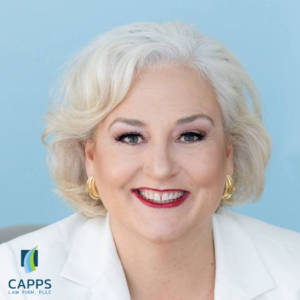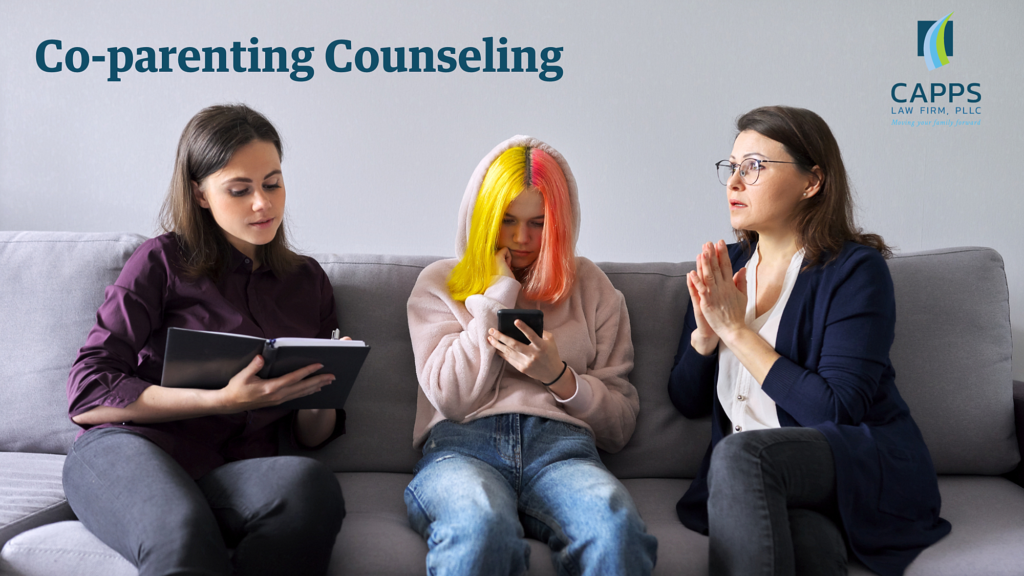After divorce, co-parenting counseling empowers ex-spouses and their children to envision a future apart and to develop new skills for maintaining healthy boundaries, learning positive communication methods, choosing shared scheduling systems, and embracing resilience, joy and hope.
After a divorce that involves children, it is not just two adults that must embark upon the journey of building new lives separate from one another. Rather, when children are part of the picture, two new family units must now adjust to co-existing, co-parenting, and findings methods to handle the steep learning curve of custody agreements, separate and yet shared school/activity/holiday calendars, and perhaps dramatically disparate life perspectives – all while coping with the emotional fallout of divorce.
Amid the turmoil and uncertainties that can overwhelm even the strongest adult after a divorce is finalized, a child is easily caught in the crossfire. Which set of new household rules do they adhere to? Who is the “fun” parent? Who caves first? Who remembers the supplies they need for the science project? Who sees them and their emotions?
Imagine being a 15-year-old freshman in high school whose world revolves around after-school sports and Taylor Swift concert tickets, and then suddenly finding yourself faced with the need to cope with house swaps, parent swaps, and maybe even entire community swaps. Or perhaps you are in kindergarten, and you have intuitively known for a long time that your parents don’t get along. You are only five-years-old, and you love both fiercely.
Do you need to choose a side? Do you still get to stay in your bedroom decorated with dinosaurs and superheroes? Your five-year-old brain is neither cognitively nor emotionally mature enough to make those decisions.
As psychologists and family counselors alike will attest, a child shouldn’t be expected to know how to cope or how to make these types of choices. The Texas Children’s Bill of Rights clarifies that no matter how well or how poorly ex-spouses get along, the parents are responsible for protecting and prioritizing their kids’ mental and physical wellbeing. Children need support. Children need normalcy and routine and safe spaces as they adjust. And, if we are being honest, parents need these things as well, – perhaps in even greater measure than usual – as they shift into a new relationship status and co-parenting paradigm.

Psychotherapist Cindy Austin, MS, LPC, with 22+ years as a private practitioner working with families and children, contributed her expertise and explained that children and parents alike need this skill set, but after a divorce it becomes even more paramount. They need to be taught how to embrace the new routines, new schedules, and new dynamics, she said. More than anything, she emphasized, “They need to be taught resilience.”
New skills such as flexible thinking, managing emotions, checking impulses, and moderating behavior help greatly when dealing with new routines, and are the foundation for resilience: according to Psychotherapist Austin, these are the game-changing gifts that co-parenting counseling can provide.
What is co-parenting counseling?
While the term “co-parenting counseling” might seem self-explanatory, Austin carefully delineated between traditional therapy sessions and co-parenting counseling. Co-parenting counseling focuses much less on therapy modalities meant to support an individual’s emotional and psychological wellbeing, she explained, and instead relies heavily on well-researched processes meant to equip divorced parents and their children with new communication tools and skillsets needed to thrive.
Licensed Clinical Psychologist and Certified Perinatal Mental Health Provider (PMH-C) Dr. Emily Guarnotta, similarly explained the differences in an article published by Choosing Therapy. Unlike couples or family therapy, Guarnotta wrote, co-parenting counseling emphasizes the well-being of the children. Additionally, this type of counseling centers on preparing for the future instead of dwelling on and processing past events.
What are some of the specific goals?
According to Dr. Guarnotta, the main objectives of co-parenting counseling are to assist parents to work collaboratively when communicating with their children about the divorce, provide unified parenting, and avoid potential issues.

Ms. Austin elaborated on the goals of co-parenting counseling by providing examples of some of the ideal results. Specific examples include:
- Learning how to set similar boundaries and family rules adhered to by both parents
- Re-framing a child’s perspective so they can not just cope, but also thrive in both households
- Teaching and practicing new communication skills to diffuse hostility and re-focus on the needs of their shared child(ren)
- Setting up scheduling tools and putting systems in place to keep life running smoothly for the child as they transition from one house to the next and back again
- Shifting the storyline of the two new family units, so there is mutual understanding and acceptance even when not all of the family members live under the same roof anymore
Who is involved in co-parenting counseling sessions?
Unlike what one might think, Austin said that she rarely ever sees ex-spouses simultaneously. In rare cases with incredibly amicable adults or when partners come to her before divorce, she might work with both parents in the same session. But much more common is a system that involves three specially trained co-parenting therapists, so that each adult and child has their own therapist.
While co-parenting counseling is individualized for each situation, the framework is intended to ensure that each person has ample opportunity to learn the specific skills most pertinent to their role. Often, this means that families benefit the most from a team of co-parenting therapists working together on the same page.
What types of situations are good candidates for co-parenting counseling?
Co-parenting counseling can be the game-changing resource for some, but it is important to note that it is not an ideal solution in certain situations.
High-conflict divorces, situations involving abuse, and family units with unwilling participants are among the situations that Austin said require either parallel parenting support or (in severe cases) the management of parental alienation. In many of these situations, there is the need for additional legal intervention to protect the involved children’s wellbeing.
Who initiates co-parenting counseling?
While some co-parents choose to attend co-parenting counseling on their own, often these sessions are either arranged by the attorneys representing each spouse or mandated by a judge. In each situation, the legal teams work out agreements to determine who will pay for co-parenting counseling and how many sessions (if court-ordered) might be required.
When Co-Parenting Counseling Is Successful…
 In successful situations, Austin said that both parents and children leave co-parenting counseling with the strength to re-imagine their futures together and yet separate. Some of the positive results can include: learning to reduce emotional trauma and parental guilt; creating healthy boundaries and household rules; learning new communication skillsets and scheduling systems; and, most importantly, gaining the resilience to engage in life and cling to hope for future memories filled with laughter and love.
In successful situations, Austin said that both parents and children leave co-parenting counseling with the strength to re-imagine their futures together and yet separate. Some of the positive results can include: learning to reduce emotional trauma and parental guilt; creating healthy boundaries and household rules; learning new communication skillsets and scheduling systems; and, most importantly, gaining the resilience to engage in life and cling to hope for future memories filled with laughter and love.
Get the Support You Need for Divorce and Coparenting in Texas

Kelly J. Capps offers 28+ years of experience in protecting the rights of clients going through a Texas divorce involving both simple and complex custody cases. The legal team at Capps Law Firm, PLLC, is driven to find the best way to move forward for clients, ensuring that families are supported legally and emotionally with the resources to help children thrive in co-parenting situations.
If you would like to discuss your family law matter and/or any concerns that you may have about custody or co-parenting after divorce, contact our office or call our office at (512) 338-9800.
Contributor:
Psychotherapist Cindy Austin, MS, LMC, of Austin Empowered works with individuals and family units. She customizes her co-parenting counseling support for client’s needs and situations, and is also a certified New Ways for Families® therapist.
Notice
This article does not create an attorney-client relationship. Its purpose is to educate the public about the topic of family law. This article should not be seen as legal advice. You should consult with an attorney before you rely on this information.



